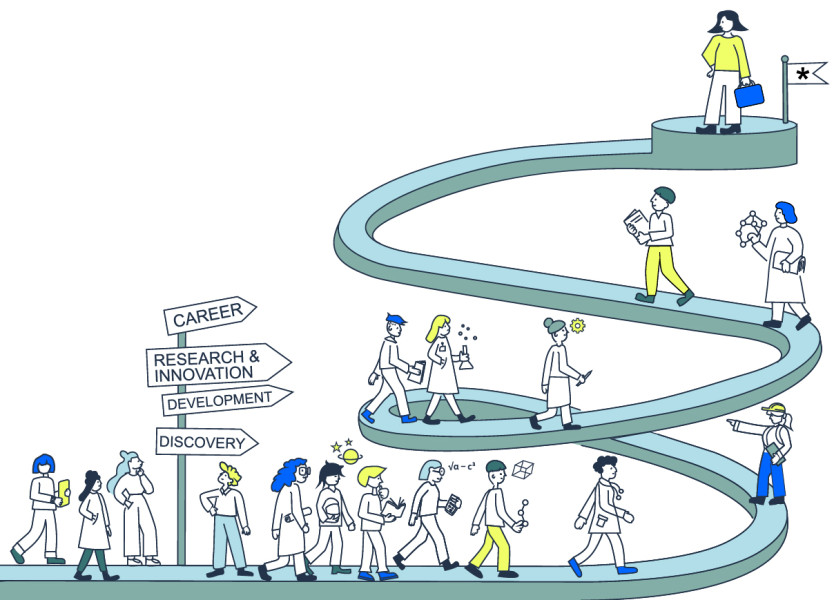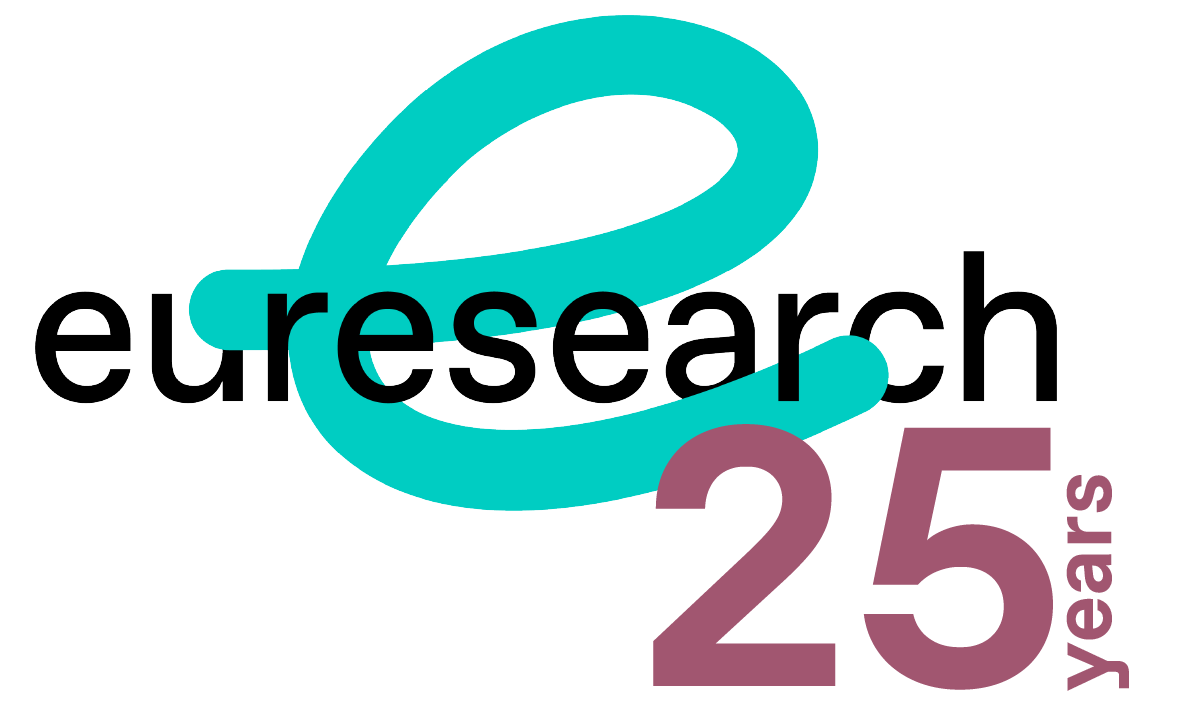Newsletter "Euresearch Info" September 2025

Towards Equality in Research Careers: The Contribution of EU Funding
The "She Figures 2024" report shows that gender inequality is still a major issue in research and innovation (R&I) across Europe. Women make up only 34% of researchers in the EU and are especially underrepresented in science, technology, engineering and mathematics (STEM) fields. On average, only 30% of full professors are women, and women hold only 26% of head positions in higher education, 22% of university presidencies, and 38% of board seats. They represent just 9% of inventors. In Switzerland, the disparity is even greater: According to the Swiss National Science Foundation's gender monitoring, although more than 50% of university graduates are women, they make up only 23-30% of professors.
The reasons for this gap are complex and often linked to broader social and cultural issues. However, R&I funding programmes like Horizon Europe can help bring about change by prioritising gender equality.
Since 2022, universities and public research organisations applying for EU funding are required to have a “Gender Equality Plan” (GEP). The European Research Council (ERC) has its own GEP, which allows applicants to explain career breaks, such as parental leave. The ERC also aims for gender balance in its panels and trains reviewers to recognise bias. The Marie Skłodowska-Curie Actions (MSCA) support researchers with family responsibilities by offering flexible funding and parental leave options. The European Innovation Council (EIC) encourages more women to lead innovative projects, with initiatives like the “EU Prize for Women Innovators” and “EIC Women Leadership Programme”, as well as promoting gender balance among mentors and evaluators.
Despite these efforts, gender gaps remain, especially in senior positions. However, EU programmes like Horizon Europe offer strong tools to promote change. Making sure these tools are used effectively is key to building a more equal and inclusive R&I environment.
Author: Marco Cavallaro, MSCA National Contact Point and Rita de Brito, ERC National Contact Point
Illustration: Katja Stähli


_teaser.png?lm=1756127569)

_teaser.png?lm=1756188648)
_teaser.png?lm=1756127625)
_teaser.png?lm=1756127884)
_teaser.png?lm=1756127724)
_teaser.png?lm=1756127746)
_teaser.png?lm=1756189565)
_teaser.png?lm=1756127797)